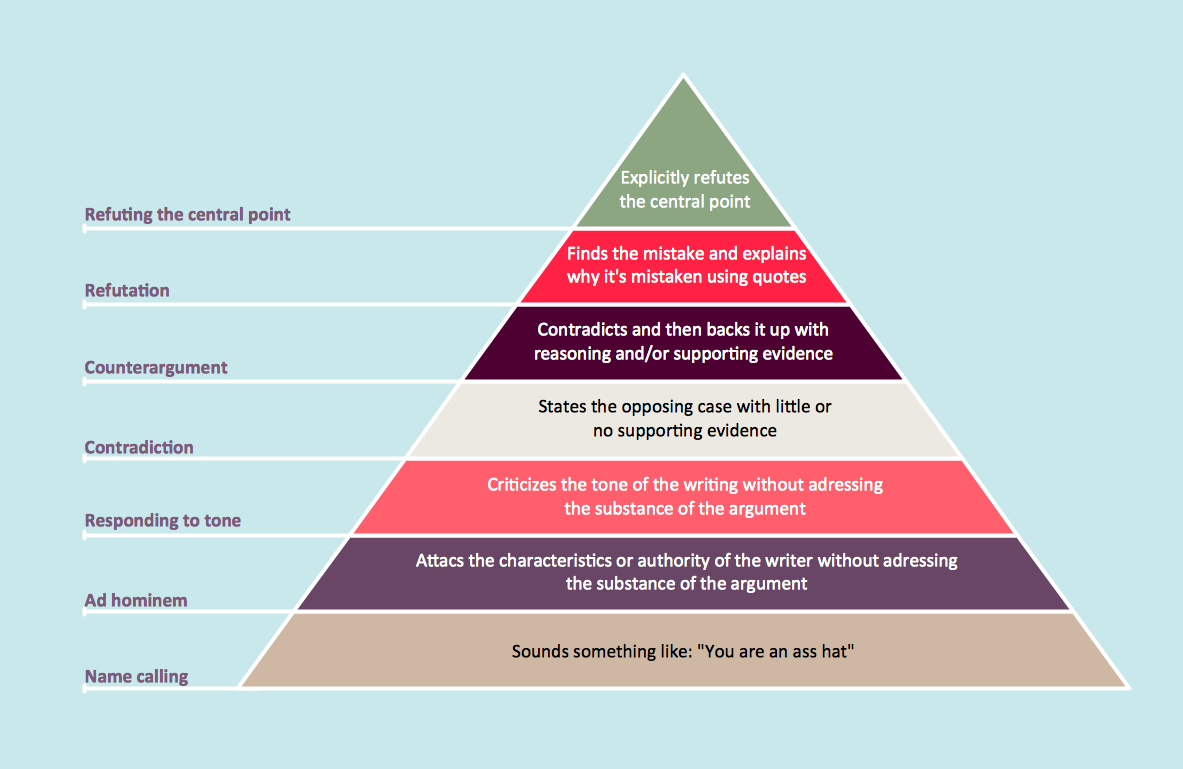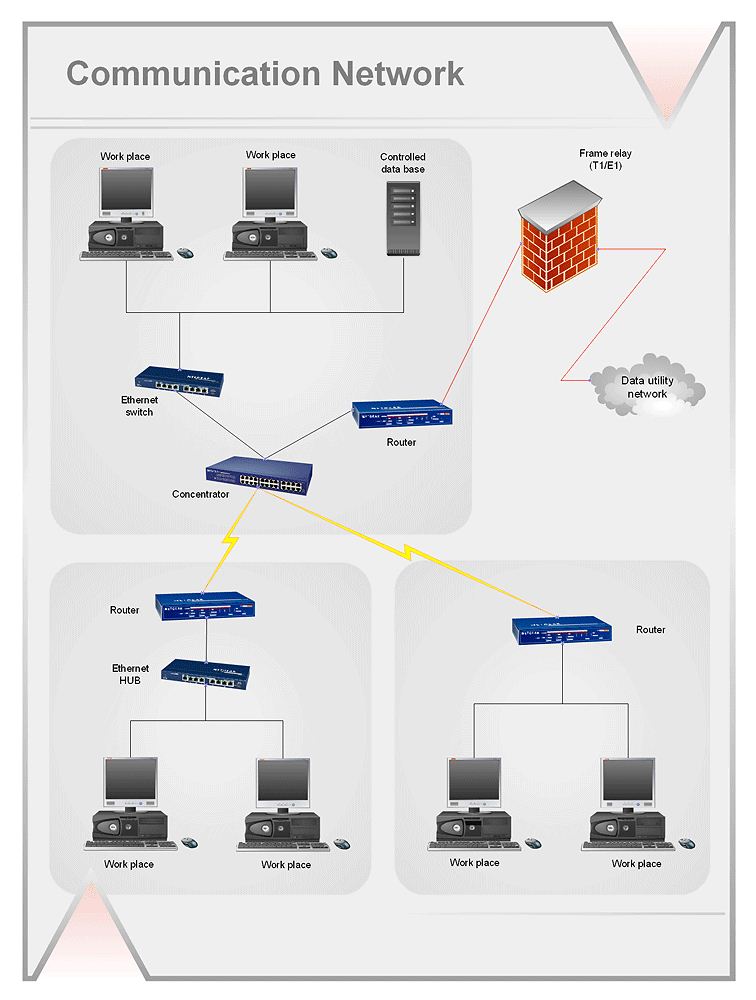HelpDesk
How to Draw a Pyramid Diagram in ConceptDraw PRO
Pyramid diagram (triangle diagram) is used to represent data, which have hierarchy and basics. Due to the triangular form of diagram, each pyramid section has a different width. The width of the segment shows the level of its hierarchy. Typically, the top of the pyramid is the data that are more important than the base data. Pyramid scheme can be used to show proportional and hierarchical relationships between some logically related items, such as departments within an organization, or successive elements of any process. This type of diagram is often used in marketing to display hierarchical related data, but it can be used in a variety of situations. ConceptDraw PRO allows you to make a pyramid diagram, quickly and easily using special libraries.
 Pyramid Diagrams
Pyramid Diagrams
Pyramid Diagrams solution extends ConceptDraw PRO software with templates, samples and library of vector stencils for drawing the marketing pyramid diagrams.
Network Diagramming with ConceptDraw PRO
At the moment computer networks are widespread, various types of computer networks are constructed around the world, operate and interact with each other. There are many kinds of computer networks that differ in the transmission medium, in communications protocols, in size, topology, organizational intent, and also in territorial basis. There are popular such types of computer networks as Global Area Network (GAN), Wide Area Network (WAN), Metropolitan Area Network (MAN), Local Area Network (LAN). ConceptDraw PRO is a powerful network diagramming software, perfect for software engineers, software designers and software developers who need to draw Computer Network diagrams, designs, schematics, and network maps in no time. The pre-drawn shapes representing computers, network devices and smart connectors offered by ConceptDraw solutions help to create the accurate diagrams and documentation, represent computer network topologies and designs, depict Computer network architectures, logical, physical, cable networks, and vehicular networks.- Sketch The Following Geometrical Shapes Pyramid Prismand Cone
- How to Draw a Pyramid Diagram in ConceptDraw PRO | How to ...
- How to Draw a Pyramid Diagram in ConceptDraw PRO | Pyramid ...
- How to Create a Pyramid Diagram | How to Draw a Pyramid ...
- How to Draw a Pyramid Diagram in ConceptDraw PRO | Design ...
- Visio Stencil Layered Pyramid
- Geometrical Solid Shapes
- How to Draw a Pyramid Diagram in ConceptDraw PRO | How to ...
- Drawing Of Solid Figures Cube Cuboids Cone Prism Pyramid
- 4 Level pyramid model diagram - Information systems types ...
- Pyramid Without Top Geometric Shape
- Pyramid Diagram | Process Flowchart | Pyramid Diagram | Chart Of ...
- 3d Box Pyramid All Type Of Shapes
- Pyramid Structural Drawing
- How to Create a Pyramid Diagram | How to Draw a Pyramid ...
- Prism Geometric Shape
- Design elements - Solid geometry | How to Create a Pyramid ...
- Program Structure Diagram | Process Flowchart | Pyramid Diagram ...
- Pyramid Model Concept Map
- Competitor Analysis | Pyramid Chart Examples | Create Graphs and ...

